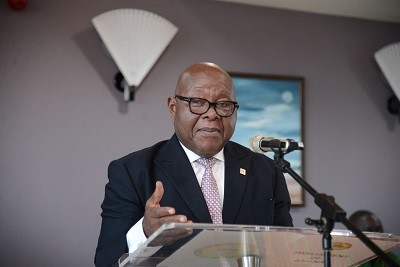The Speaker of Parliament, Professor Mike Oquaye, has urged ministers of state to implement the National Development Planning Commission’s (NDPC) carefully researched development plans and not execute programmes that they “think are best”, which are sometimes disconnected from the nation’s long-term vision and likely to be ditched by a new government when power changes hands.
He noted that this also can be done effectively if the nation is able to build a “strong civil service” that will not only be neutral but also impartially follow-up and implement development policies for the nation’s socio-economic growth.
“The nation’s development must not be left in the hands of politicians and their political party manifestos: there should be a direct correlation between what they promise and what the vision of the country is, which has been clearly stated by the National Development Planning Commission (NDPC).
The NDPC is the mandated state body to give development plans and programmes to Ministries Departments and Agencies (MDAs) and Metropolitan, Municipal and District Assemblies (MMDAs),” he stressed.
Speaking at the NDPC 2019 Annual Progress Report (APR) launch, Professor Oquaye said the Commission has been cloaked with the powers to push for their plans to be duly recognised in the nation’s socio-economic development agenda; and it must utilise its powers for the nation’s benefit. For him, when this is effectively done, parliament will have to shape its operations to connect with plans of the NDPC and ensure that all ministers speak the Commission’s developmental language.
“Parliament is particularly interested in your work, because if we are to fulfil the members of parliament’s mandate as provided for under the constitution, then of course we must be able to know what the national planning policy is – because when the minister of education comes, we should be able to ask him/her questions as to the national plan or his/her actions toward the achievement or implementation of those projects.
And, in fact, I would say we can go a bit further – since when ministers come for vetting in the early stages, this can be a very useful tool so as to go into that person’s plan for implementation. Many of us come to the ministries as if we are being asked to do something that we think best, we think our own; I will do my best, that is the approach,” Professor Oquaye said.
He intimated that: “In this Commission, we need a very strong civil service because a strong civil service allows impersonal implementation of policies. When the implementation process is detached, it makes it possible for the planning process to become more fruitful. You plan and the next person will apply it.”
He added that many other countries have shown the way as to how effective this can be, and the nation should take a cue. “In this regard, the Indian model is fantastic. The way the institution influences the civil service and the way the civil service, as a result of the relationship over the years, has been able stay aloof of whether it is Congress Party government or whatever somehow works perfectly; and it is because of the strength of private authority and the beautiful symbiosis between them and the Civil Service Commission.”










